What I've Learned
Six women achievers on power, balance and getting ahead.
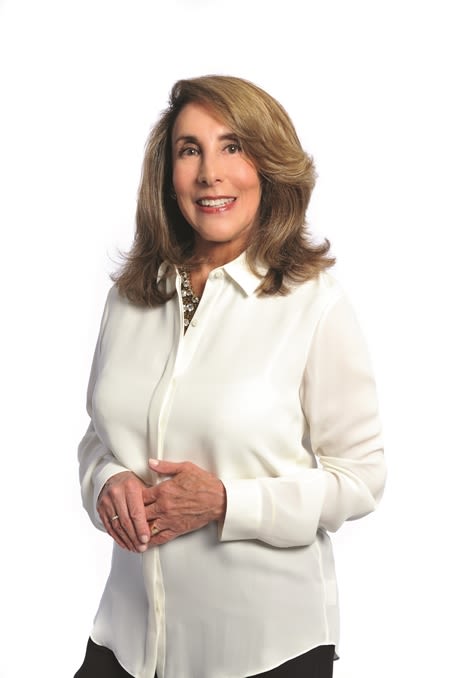
Sandi Stuart
Sandi Stuart, the founder and president of the Stuart|Murray Group, a Washington, D.C., lobbying firm, lives in Sarasota and commutes regularly to D.C. to serve clients in healthcare, technology, defense and nonprofits. Her clients have included Google, Yahoo!, Microsoft and Lockheed Martin. Her earlier career included a stint on Capitol Hill as a chief of staff in the House of Representatives and as one of the highest-ranking women in the Clinton Administration as the Assistant Secretary of Defense for Legislative Affairs at the Department of Defense.
What challenges did you face in Washington?
For the past 30 years Washington, D.C., has been a good city for professional women. But my experience has been that we have to work harder, longer and make more personal sacrifices along the way. Men are often assumed to be competent. Women still have to prove such.
Who helped you along the way?
I was hired by men and promoted by men. But this past year when I decided to start my own firm, it was women who helped me launch my business and offered me retainers. This is indicative of women [now] holding senior positions and doing the hiring and firing.
Was there a moment when you realized you could take charge?
When I went into the Clinton Administration I found myself completely outside my comfort zone. I was terrified of making mistakes and did not have a trusted network of colleagues. And we were truly dealing with life and death situations....Bosnia, Somalia, etc. My then-fiancée likely grew tired of the “woe is me” sessions, and he told me that I could do the job and do it better than most. The next day something inside of me clicked. I knew I could do this job, and I never looked back.
How have things changed in the workplace since you started?
There are more women in professional positions, and for both men and women, there is much more leeway to care for your children when they are ill or have a special event. People are also able to adjust their hours so they can be home when their children get home from school. There is also more allowance for working remotely.
How have younger professional women changed in the workplace since you started?
Women today start out feeling more empowered. They don’t even consider limitations to success. It is great!
What skills do you have that helped you rise to the top?
In my profession, working with people, convincing them to follow a certain strategy and/or helping them through critical times for their company or career requires one to understand their thoughts and needs. One skill that I had to learn was being calm when all around you are in turmoil. If you exude an air of calmness, you also project confidence. In the world of politics, that is essential. In general, never belittle anyone who works for you, and never express anger. Calm down and then express yourself. That way you remain in control.
How did you balance home and life?
Not very well. I am fortunate that my sons turned out to be fine adults, but I gave up too much of my family time for my career. Everyone has to make the accommodations that are best for him or her.
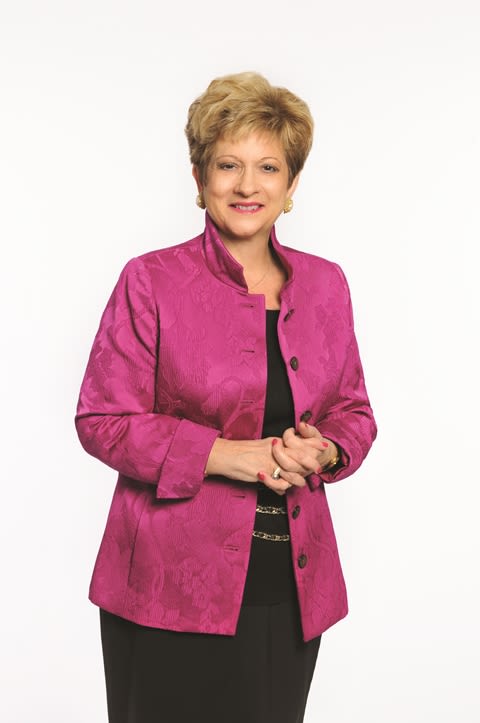
Janice Zarro
Executive director of the Women’s Resource Center of Sarasota County since 2003, attorney Janice Zarro headed the Washington, D.C., office of Avon Products in the 1980s and the pharmaceutical company Mallinckrodt, Inc. in the 1990s. Prior to her corporate roles, she served as a counsel to the Judiciary Committee of the House of Representatives, which was involved in the impeachment case against President Richard Nixon, and as a counsel to the Senate Labor and Human Resources Committee.
Biggest career challenge?
When I started my legal career in the U.S. House of Representatives, most lawyers were older and male. To get access to information and decision-making circles, you had to be resilient and creative.
Did anyone try to hold you back?
I hurt myself by trying to avoid risks and failure. Women are more risk averse, but they also come into their own at a later age than men and assume management responsibilities later. They believe they should be rewarded because of their achievements; men believe they should get the promotion for who they are. It is a different mindset.
What’s the biggest mistake you ever made?
Staying too long in positions and companies. I enjoyed my work so much that I overlooked or passed on opportunities, often for higher compensation or more responsibilities.
When did you realize you were a leader?
Each decade made me more aware of my skills, values, limitations and accomplishments. I know who I am! I also decided that I was more interested in leading and seeing change than accomplishing tasks and goals.
How are younger professional women different?
They are more confident and not willing to conform to rules or dress code. They also are less willing to get to know and trust their female colleagues. I would not have succeeded in my career if it were not for the women in my professional organizations who provided guidance and support.
How did you balance work and home life?
I didn’t and I do not! I am an unapologetic workaholic and there never was and never really is balance. I missed my mother’s milestone 75th birthday party to lobby for a tax bill, and one time had my husband have surgery on New Year’s Eve because I knew I would not be working. I keep trying, however, to get more balance between work and home life.
Tips for navigating a male-dominated workplace?
The social skills needed to navigate the workplace are critical, and women often fail at it. Finding common communication threads outside work is important. Talk sports, college alumni stuff, hobbies—something that provides a human dimension and builds trust.
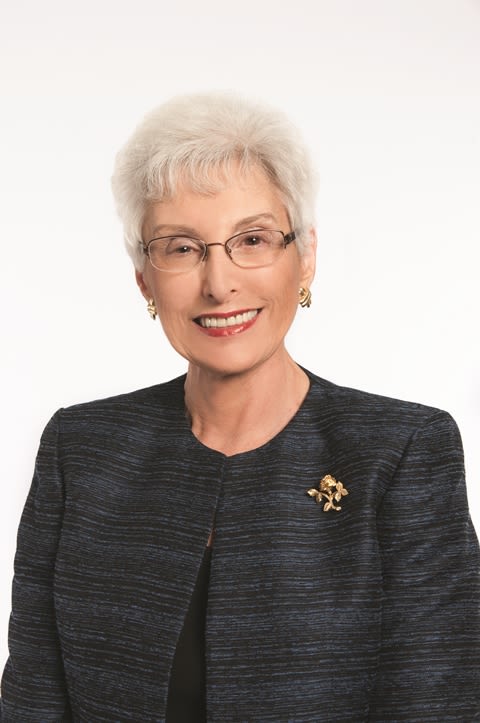
Carol Green
Carol Green served as president/CEO of Weight Watchers of Rocky Mountain Region, and Franchise Services of America, and also Franchise Systems International. Her book, The Franchise Survival Guide, published in 1993, was a Fortune Book Club selection. A board member of financial institutions, chambers of commerce and other business organizations, Green received the national U.S. Women in Business Advocate award from the Small Business Administration. The author of the recently published Spiritual Transformation in America, she is a co-founder of Vista Spiritual Center in Sarasota.
How has the workplace changed for women?
When I entered the workforce a narrow range of positions was available to women. Younger women today enter the workforce better educated and with the expectation that they will get the job they are qualified for and will advance.
What skills helped you to rise to the top?
I am tenacious. I have a very high energy level. I have strong communication skills. I learn quickly. I tend to communicate in the same way as men have traditionally communicated. That is, I get to the point and develop it. My strongest skill is the ability to understand the potential impact of a decision.
How did you balance work and home life?
I was an entrepreneur. I owned the business. I welcomed a third child into my life two years after I got started and had a nanny for the baby. I worked at the office until 3 p.m. and was home when my children got home from school and then returned calls that came in from the office. I frequently went out in the evening as I did public speaking. It wasn’t always easy. I was blessed with a husband who pitched in, and a terrific and loyal work staff.
Is lack of confidence a women’s issue?
Women who succeed must have confidence. This is true for men, too. The problem today is that many women are single parents, and they are forced to be risk averse if they are the principal breadwinner.
Tips for navigating a male-dominated workplace?
Join organizations that are dominated by men, such as Rotary or Kiwanis. Get involved in the chamber of commerce. In these organizations, you work side by side with the most powerful men and women in the business community. I also recommend that women get their training in the corporate world and then consider developing their career in the entrepreneurial world. You will be your own boss, have a degree of independence, while growing your own company.

Dr. Chippy Nalluri
Dr. Nalluri completed her cardiology fellowship at Case Western Reserve University and relocated to the Sarasota area with her husband and two daughters in June 2001. A partner in the practice Heart Specialists of Sarasota, she is trained in all aspects of noninvasive cardiology, including three-dimensional echocardiography and CTA imaging. Dr. Nalluri is board certified in cardiovascular diseases and nuclear cardiology. She has a special passion for managing the unique problems of women with heart disease.
Are women cardiologists a minority?
Medicine, and specifically cardiology, is a male-dominated field. Approximately 12 percent of general cardiologists and about 3 percent of interventional cardiologists are women.
What challenges does that present?
Both referring physicians and patients are reluctant to entrust a female cardiologist to manage complex cardiovascular conditions. This bias may not be a conscious decision, but simply tradition. Furthermore, the culture of cardiology does not foster motherhood or promote family responsibilities. This field is all about altruism. “Service over self” is the name of the game. It is a difficult balance when work hours can add up to 90 or more hours in a week.
Why is it taking so long to change the bias that heart disease is not a woman’s disease?
The misconception of heart disease as a man’s disease dates back to the 1960s, and this gender inequality in biomedical research still persists. Women’s health was primarily managed by obstetricians and gynecologists focusing on reproductive and breast health. [This problem] was further heightened by atypical symptom presentation in women with coronary artery disease [as well as] inconclusive or even normal test results in women with active disease. More women in clinical and research trials are needed.
How do you balance work and home life?
I struggle. I cannot be a great, altruistic cardiologist delivering über-cardiac care and still manage all the demands of two brilliant young girls. I have an incredible husband. My girls are routed from home to school and back, to music lessons and play dates to recital and school events. Family support has been vital to allow me to balance my profession and home life.
How do you deal with a workplace that is dominated by male physicians?
I go to work tucking in my ego. Ego has no role in patient care. I approach my male counterparts in a similar fashion. I do not tout my capacities or approach my colleagues with arrogance. I try to deliver the best medical care to the best of my capacity. My patients are my biggest advocates. It is a lot easier to navigate through a difficult field in a male-dominated domain with thousands of patients on your side.
What advice would you give women in business or medicine today?
Don’t try to be everything to everybody. It is a recipe for failure and disappointment. Ask for help when it is needed. Surround yourself with individuals you love, trust and respect. My wonderful parents make many sacrifices for me and my family. I am constantly amazed with my talented and brilliant husband, Dr. Raja Nalluri. My two beautiful girls, Arya and Maya, are very generous with their love. They serve as constant reminders that I have to be the best that I can be.
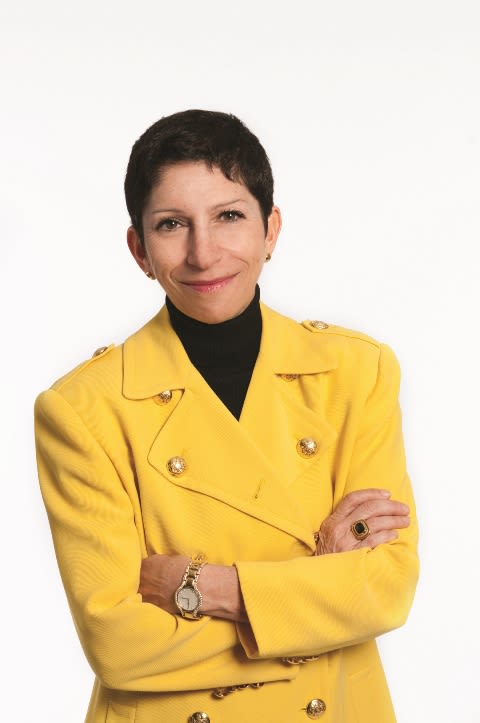
Felice Schulaner
Felice Schulaner is the executive director of the Coach Foundation, which focuses on women’s empowerment and education for underserved populations. Prior to this role, she was the senior vice president of human resources for Coach Inc., a multibillion-dollar global accessories company. She held similar positions at Optimark Technologies and Salant Corporation. Her 25-plus year business career also included senior human resources positions at American Express and Macy’s and retail management positions at Sears and Jordan Marsh. A graduate of New College of Florida, she serves on the New College Board of Trustees and as the chair of the New College Foundation Board.
Did mentors help you in your career?
I have actively sought positions where I could work with super-smart people and have never been shy about asking them for help. I believe that in addition to a paycheck, working should provide you with the chance to build your portfolio of skills and knowledge. You have heard the expression “don’t work for a jerk”; I also would add, don’t work for someone who can’t teach you something.
What’s the biggest mistake you ever made?
Not asking for help. Early in my career, I tried to do everything myself which ultimately burned me out and didn’t help the business, either. Recognizing when more resources are required to achieve success is not weakness, it is wisdom.
What skills do you have that helped you rise to the top?
I am hard working and tenacious. I have high standards. I try to maintain perspective and a sense of humor. Lastly, when I make a mistake, I get upset, but I don’t get paralyzed. I learn and move on.
How did you balance work and home life?
Not well. When I was working full time, it pretty much took over my life. I have a very understanding husband who appreciated that and was incredibly supportive. He knew I would not be running home from work to make dinner or worrying about cleaning the house, and that was OK. We did not have children, which made it a lot easier. I know many women who figured out how to have work and family, and I admire them greatly, but I never had to crack that code.
How are men and women different when it comes to work?
Women tend to be more detail and planning oriented than their male counterparts. They also take failures more personally and work harder to prevent them, which reinforces the perception that their labors to avoid mistakes result from risk aversion or lack of confidence. Why is it that when a woman makes a mistake she can often become unhinged while a man is more likely to shrug it off? These differences can affect careers when the fear of failure results in analysis paralysis or when bosses feel they need to spend too much time picking people up off the floor when something goes wrong.
Tips for navigating a male-dominated workplace?
I suggest you not try to be one of the boys; your perspectives and qualities are valuable and necessary to bring balance to a situation. Acting a part is both exhausting and unproductive. I consciously avoided using the words “I feel,” substituting “I think,” which seemed to have more impact. Also, getting emotional is not good for any professional, male or female, so if you are upset or frustrated try to control demonstrating it; it makes others uncomfortable and allows for
easy stereotyping.
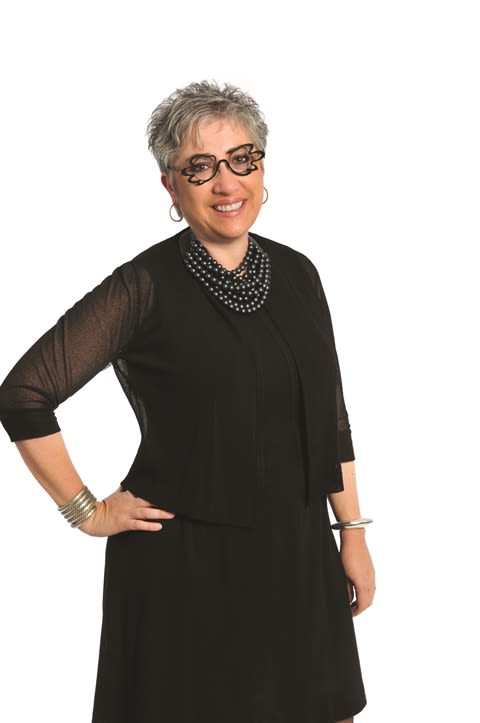
Dr. Caroline Popper
Dr. Caroline Popper is the co-founder and president of Popper and Company, an M&A advisory and specialty consulting firm serving clients in healthcare and technology with offices in Sarasota, Maryland and California. An internist and pathologist, she has more than 22 years of biotech/life sciences experience in both Fortune 500 and start-up settings. She received her medical degree from the University of the Witwatersrand (South Africa) and her master’s in public health from Johns Hopkins University. She serves on the boards of several life science and healthcare companies.
Biggest challenge in your career?
I have not really felt gender-specific obstacles. The challenges have been around the perpetual issues of work-life balance, which involve compromise in all domains. I am in a fortunate position to run my own business. Further, I founded my firm with a man, who also strives for work-life balance, so he has similar stresses related to balancing multiple demands.
Did you have a plan to get to where you are today?
No, I just was open to opportunity, and I tried to create opportunity. I think life may be too complex and full of too many unexpected twists and turns for a written plan. I do live by the concept that whenever one has a professional choice to make, choose the option that leads to more options rather than to fewer.
How do you balance work and home life?
First recognize that there are only 24 hours in the day, so balancing means that if you are going to do three things, you are not going to do each as intensely as if you only did one. And I chose the word “intensely,” rather than “well.” Balance takes a support system that comes from a supportive spouse, parents and children, who are all on the same page and themselves trying to have balance. Essentially balance is compromise—I don’t make mashed potatoes from scratch.
Are women aggressive enough when it comes to asking for promotions and raises?
Probably not. I think the objective is to be assertive, rather than aggressive. And for anyone wanting more opportunity, the ask should be positioned first as what one can bring to the situation, rather than what one can get out of it.
Tips for navigating a male-dominated workplace?
Be yourself, whatever that means to you. Do not assume that an old-fashioned gender-specific style is the only one that can succeed.
Advice for employers?
Progressive employers need to implement family-friendly policies that would be good for men and women.